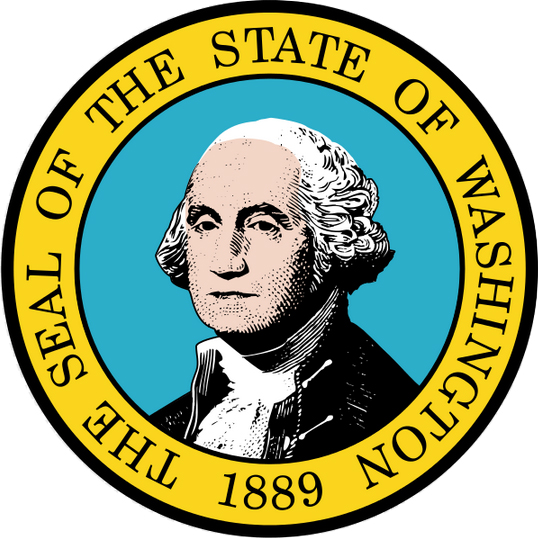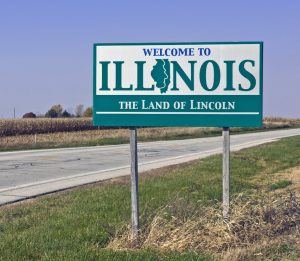 A very interesting and heartening decision was just handed down by the Michigan Court of Appeals in Vectren Infrastructure Services Corp. v. Department of Treasury in connection with a sale of an out-of-state business. Copy attached. In Vectren, the Court of Appeals held that the Department of Treasury’s (DOT) removal of the gain from the sale of the business from the denominator of the sales factor, while including the gain in the income base, violated the Due Process and Commerce Clauses. Notably, during the year in question, Michigan used a single sales factor apportionment formula. The decision underscores the potential unfair apportionment inherent in a single sales factor apportionment formula.
A very interesting and heartening decision was just handed down by the Michigan Court of Appeals in Vectren Infrastructure Services Corp. v. Department of Treasury in connection with a sale of an out-of-state business. Copy attached. In Vectren, the Court of Appeals held that the Department of Treasury’s (DOT) removal of the gain from the sale of the business from the denominator of the sales factor, while including the gain in the income base, violated the Due Process and Commerce Clauses. Notably, during the year in question, Michigan used a single sales factor apportionment formula. The decision underscores the potential unfair apportionment inherent in a single sales factor apportionment formula.
South Carolina ALC Says Pipeline Company’s Assets May Qualify for Pollution Control Equipment Exemption
 On March 6, 2020, the South Carolina Administrative Law Court entered an order in Colonial Pipeline Co. v. South Carolina Department of Revenue, No. 18-ALJ-17-0443-CC, in which it held that a pipeline company’s assets may qualify for a property tax exemption for pollution control equipment of industrial plants under S.C. Code Ann. § 12-37-220(8). In so holding, the ALC rejected the Department of Revenue’s contention that the exemption is available only to manufacturers (i.e., companies engaged in some form of production or that have some form of output). Even if the exemption required some form of production or output, the ALC said, the pipeline company’s process of separating “transmix”—the mixture that results when different petroleum products travel through a pipeline simultaneously—into salable products, adding drag-reducing agents to the product as it is transported, and removing water that accumulates in the transported product is a form of production, notwithstanding that it may be incidental to the company’s transportation business. The ALC concluded that some of the company’s assets, such as tank farms and other facilities and equipment, may fall within the meaning of “industrial plant,” while unattended pipeline that merely transports the product may not. The court ultimately denied the parties’ cross-motions for summary judgment on the grounds that further inquiry into how much of the company’s property can be classified as an “industrial plant” was necessary.
On March 6, 2020, the South Carolina Administrative Law Court entered an order in Colonial Pipeline Co. v. South Carolina Department of Revenue, No. 18-ALJ-17-0443-CC, in which it held that a pipeline company’s assets may qualify for a property tax exemption for pollution control equipment of industrial plants under S.C. Code Ann. § 12-37-220(8). In so holding, the ALC rejected the Department of Revenue’s contention that the exemption is available only to manufacturers (i.e., companies engaged in some form of production or that have some form of output). Even if the exemption required some form of production or output, the ALC said, the pipeline company’s process of separating “transmix”—the mixture that results when different petroleum products travel through a pipeline simultaneously—into salable products, adding drag-reducing agents to the product as it is transported, and removing water that accumulates in the transported product is a form of production, notwithstanding that it may be incidental to the company’s transportation business. The ALC concluded that some of the company’s assets, such as tank farms and other facilities and equipment, may fall within the meaning of “industrial plant,” while unattended pipeline that merely transports the product may not. The court ultimately denied the parties’ cross-motions for summary judgment on the grounds that further inquiry into how much of the company’s property can be classified as an “industrial plant” was necessary.
The ALC’s determination that the pollution control equipment exemption is not strictly limited to manufacturers is important in that it may have implications for other industries in which companies do not engage in traditional forms of manufacturing, or engage in manufacturing as an incident to their primary businesses, but are nonetheless required to use pollution control equipment. Keep an eye on this case.
New Mexico Court of Appeals Upholds Refund Claim Dismissal for Taxpayer’s Violation of Discovery Order
 The New Mexico Court of Appeals decided a case illustrating the heavy risks of failing to comply with a court’s order. Specifically, the Court of Appeals upheld the District Court’s full dismissal of a taxpayer’s refund claim for violating a discovery order. In Bowman v. Manforte, the taxpayer sought a refund of Gross Receipts Tax arguing that her income was exempt as wage income rather than income from an independent business. The New Mexico Department of Revenue Services (“Department”) suspected the taxpayer’s federal tax return would reflect deductions against the income that would be permitted only if the income were business income and not wages for federal income tax purposes. The taxpayer refused to produce the federal tax return, claiming that the return was privileged from civil disclosure under New Mexico’s tax secrecy law. The Department brought the taxpayer’s refusal before the District Court and twice obtained orders requiring the taxpayer to produce the return. After the taxpayer failed to comply with the disclosure orders, the District Court took the dramatic step of dismissing the taxpayer’s refund claim altogether. The taxpayer appealed to the Court of Appeals. Continue Reading ›
The New Mexico Court of Appeals decided a case illustrating the heavy risks of failing to comply with a court’s order. Specifically, the Court of Appeals upheld the District Court’s full dismissal of a taxpayer’s refund claim for violating a discovery order. In Bowman v. Manforte, the taxpayer sought a refund of Gross Receipts Tax arguing that her income was exempt as wage income rather than income from an independent business. The New Mexico Department of Revenue Services (“Department”) suspected the taxpayer’s federal tax return would reflect deductions against the income that would be permitted only if the income were business income and not wages for federal income tax purposes. The taxpayer refused to produce the federal tax return, claiming that the return was privileged from civil disclosure under New Mexico’s tax secrecy law. The Department brought the taxpayer’s refusal before the District Court and twice obtained orders requiring the taxpayer to produce the return. After the taxpayer failed to comply with the disclosure orders, the District Court took the dramatic step of dismissing the taxpayer’s refund claim altogether. The taxpayer appealed to the Court of Appeals. Continue Reading ›
Arizona Advances Legislation Requesting Federal Intervention for Sales Tax Simplification
 There have been two interesting developments in Arizona as a result of Wayfair. First, the Arizona House of Representatives pushed forward a resolution, H.C.M. 2006, last week to formally ask Congress to enact uniform national legislation to simplify sales tax or similar tax collection by all states and to reduce the burden of tax compliance on remote sellers. In addition, the Arizona Senate pushed forward S.C.M. 1003, requesting Congress to do the same, on February 13. Each bill needs to be sent to the other chamber for final passage. If either bill is passed, the measure would be transmitted to the federal government. Arizona would be the first state requesting federal intervention to ensure sales tax compliance simplicity in all states by passing state legislation.
There have been two interesting developments in Arizona as a result of Wayfair. First, the Arizona House of Representatives pushed forward a resolution, H.C.M. 2006, last week to formally ask Congress to enact uniform national legislation to simplify sales tax or similar tax collection by all states and to reduce the burden of tax compliance on remote sellers. In addition, the Arizona Senate pushed forward S.C.M. 1003, requesting Congress to do the same, on February 13. Each bill needs to be sent to the other chamber for final passage. If either bill is passed, the measure would be transmitted to the federal government. Arizona would be the first state requesting federal intervention to ensure sales tax compliance simplicity in all states by passing state legislation.
Washington B&O Tax Litigation Hits Financial Services Industry
 A Washington state trial judge partially granted the state’s motion to dismiss a lawsuit challenging the validity of a recently enacted Washington tax measure that increases the state’s Business & Occupation Tax (B&O Tax) on large, out-of-state financial institutions. The Plaintiffs, the Washington Bankers Association and American Bankers Association (collectively, the “Bankers Associations”) filed a challenge to invalidate House Bill 2167, which targets large out-of-state financial institutions by increasing Washington’s B&O Tax rate if the institution’s annual net income equals to or exceeds $1 billion. The Bankers Associations sought to invalidate the law, which became effective January 1, 2020, on the grounds that the measure violates: (1) the state’s constitutional requirement to introduce a bill at least 10 days prior to the adjournment of a legislative session; and (2) the U.S. Constitution’s Commerce Clause because it discriminates against out-of-state financial institutions by imposing a higher tax rate on out-of-state financial institutions versus in-state institutions. The state moved to dismiss the complaint, focusing on the procedural issue under the state’s constitution rather than the apparent discriminatory nature of the law. Specifically, the state asserted that the “enrolled bill doctrine” enjoined the Washington trial court from reviewing evidence, other than the final enrolled bill itself, to show that a constitutional violation occurred during the enactment process.
A Washington state trial judge partially granted the state’s motion to dismiss a lawsuit challenging the validity of a recently enacted Washington tax measure that increases the state’s Business & Occupation Tax (B&O Tax) on large, out-of-state financial institutions. The Plaintiffs, the Washington Bankers Association and American Bankers Association (collectively, the “Bankers Associations”) filed a challenge to invalidate House Bill 2167, which targets large out-of-state financial institutions by increasing Washington’s B&O Tax rate if the institution’s annual net income equals to or exceeds $1 billion. The Bankers Associations sought to invalidate the law, which became effective January 1, 2020, on the grounds that the measure violates: (1) the state’s constitutional requirement to introduce a bill at least 10 days prior to the adjournment of a legislative session; and (2) the U.S. Constitution’s Commerce Clause because it discriminates against out-of-state financial institutions by imposing a higher tax rate on out-of-state financial institutions versus in-state institutions. The state moved to dismiss the complaint, focusing on the procedural issue under the state’s constitution rather than the apparent discriminatory nature of the law. Specifically, the state asserted that the “enrolled bill doctrine” enjoined the Washington trial court from reviewing evidence, other than the final enrolled bill itself, to show that a constitutional violation occurred during the enactment process.
Massachusetts Supreme Judicial Court Upholds Massachusetts Sales Tax on Screen-Sharing Software Products
 The Massachusetts Supreme Judicial Court held that sales tax applied to subscription fees for three online Citrix products, “GoToMyPC,” “GoToAssist” and “GoToMeeting,” which allow users to remotely access other users’ computers. Citrix Systems, Inc. v. Comm’r of Revenue, No. SJC-12741 (Mass. Feb. 5, 2020). In so holding, the Court affirmed the Massachusetts Appellate Tax Board’s determination that Citrix made taxable sales of tangible personal property, rather than nontaxable sales of services.
The Massachusetts Supreme Judicial Court held that sales tax applied to subscription fees for three online Citrix products, “GoToMyPC,” “GoToAssist” and “GoToMeeting,” which allow users to remotely access other users’ computers. Citrix Systems, Inc. v. Comm’r of Revenue, No. SJC-12741 (Mass. Feb. 5, 2020). In so holding, the Court affirmed the Massachusetts Appellate Tax Board’s determination that Citrix made taxable sales of tangible personal property, rather than nontaxable sales of services.
Illinois Taxpayers Score Rare TIA Win in Property Tax Dispute
 On January 29, 2020, the U.S. Court of Appeals for the Seventh Circuit held the Tax Injunction Act did not bar a federal lawsuit challenging property tax assessments on equal protection grounds because the taxpayers that brought the suit did not have a plain, speedy and efficient remedy in the Illinois state courts.
On January 29, 2020, the U.S. Court of Appeals for the Seventh Circuit held the Tax Injunction Act did not bar a federal lawsuit challenging property tax assessments on equal protection grounds because the taxpayers that brought the suit did not have a plain, speedy and efficient remedy in the Illinois state courts.
No Dealer Here: Walmart Walks Away with Big Marketplace Facilitator Win in Creole State
 On January 29, 2020, the Louisiana Supreme Court issued a 4-3 decision in Normand v. Wal-Mart.com USA, reversing in full two lower courts and holding Walmart.com was not required to collect local sales tax on third-party sales facilitated through its online marketplace. The majority concluded Walmart.com was not a “dealer” under Louisiana law for purposes of such sales and the company’s contracts with third-party marketplace retailers did not transfer the third-party retailers’ sales tax obligation to Walmart.com.
On January 29, 2020, the Louisiana Supreme Court issued a 4-3 decision in Normand v. Wal-Mart.com USA, reversing in full two lower courts and holding Walmart.com was not required to collect local sales tax on third-party sales facilitated through its online marketplace. The majority concluded Walmart.com was not a “dealer” under Louisiana law for purposes of such sales and the company’s contracts with third-party marketplace retailers did not transfer the third-party retailers’ sales tax obligation to Walmart.com.
Welcome to Pillsbury SALT, Zack!

Pillsbury SALT is pleased to welcome Zachary Atkins to the team!
Zack previously served as a deputy general counsel to Fitzgerald USA handling a diverse range of projects from tax to corporate matters. Prior to joining Fitzgerald, his practice focused primarily on state and local tax issues as an associate at Eversheds Sutherland from 2010 to 2017.
He will join Pillsbury’s Nashville office as a special counsel, expanding our nationwide SALT practice.
Solicitor General Argument Likely Dooms Arizona Tax Case at High Court
(This article originally was published by Law360 on January 16, 2020.)
The saga continues in Arizona v. California, Arizona’s U.S. Supreme Court challenge of California’s tax reach, but signs are strong it may be ending soon.
Last year, Arizona filed a motion to the court seeking to file a complaint against California under the court’s original and exclusive jurisdiction over controversies between states.1 Arizona contends California assesses and enforces its doing business tax (i.e., an $800 annual and minimum tax imposed on businesses doing business in the state) so expansively that it unconstitutionally “reaches out-of-state companies that do not conduct any actual business in California, and indeed have no connection to the state except for purely passive investment in California companies.”2



